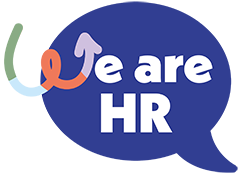The way we make decisions is critical for businesses because poor judgments – or ones that have been poorly handled – may have a substantial impact on people’s lives and the reputation of businesses. As a result, when we make judgments based on sound ideas and live by sound values, we can improve the lives of people as well as their work experiences.
Even if a decision does not have a great outcome for everyone, we may manage it as best we can by acting ethically in how we carry out that decision and how we treat people.
We may do this by thinking about multiple ethical views while making judgments, criticizing others’ decisions, and being open about what we’re doing and why.
- Ethical practice
The way we make decisions is critical for businesses because poor judgments – or ones that have been poorly handled – may have a substantial impact on people’s lives and the reputation of businesses. As a result, when we make judgments based on sound ideas and live by sound values, we can improve the lives of people as well as their work experiences.
Even if a decision does not have a great outcome for everyone, we may manage it as best we can by acting ethically in how we carry out that decision and how we treat people.
We may do this by thinking about multiple ethical views while making judgments, criticizing others’ decisions, and being open about what we’re doing and why and role-modelling our professional principles and integrity.
- Professional courage and influence
At work, we require these traits daily. We all need to influence others, whether it’s presenting a case for change, sharing ideas, gaining buy-in from stakeholders, or engaging with line managers on personnel issues. And courage is typically associated with influencing: the ability to challenge when there is resistance or disagreement, speak up when something isn’t right, and take a stand when it is the correct thing to do.
We also need the bravery to admit when we’ve made mistakes, accept responsibility for them, and learn from our mistakes in the future.
To perform all these things effectively, we must first create relationships with others to understand their perspectives, problems, and wants, and then use the most effective methods to communicate with them to communicate with them to achieve positive outcomes
- Valuing people
We put people first in everything we do, balancing consideration, compassion, and fairness while encouraging others to do the same. We also play an important role in fostering a feeling of common purpose and providing people with a meaningful voice in things that affect their professional life.
We’ll aim to encourage a culture of trust, people development, and welfare as we advise and teach managers and leaders – and empower them to improve their own people management capability – so that everyone can be their best at work.
- Working inclusively
To achieve good results, we must collaborate with others and listen to different perspectives in the planning and delivery of our work.
Individuals must be heard and given the tools they need to collaborate when work is delivered across boundaries, geographies, and cultures. We have a critical role to play as people professionals in promoting, supporting, and establishing cross-border collaboration, along with fostering high-trust relationships and constructively managing conflict.
- Commercial drive
Commercial drive entails adopting a business- and customer-focused approach, as well as demonstrating a commitment to delivering results that add value to businesses.
As people professionals, we have the duty to focus on the things that make a valuable contribution to individuals and businesses. Recognizing and addressing people hurdles, opportunities, and risks that have the largest effect on an organization’s performance and success is required. It also entails working with customers, understanding the financial implications of work, demonstrating the vision for change, and taking responsibility for its implementation.
To stay motivated and resilient in our profession, we must also take personal responsibility for our own self-care.
- Passion for learning
Professionalism is defined by a commitment to ongoing progress; thus, this behavior focuses on how we facilitate our own – and others’ – professional development.
It’s critical that people professionals approach their education from a broad perspective. We should all be reflecting on our learning and evaluating what this implies for the way we operate, from being curious about the wider world of work and engaging with others in our field to asking for input on our day-to-day approach.
This learning mindset also enables us to seek opportunities to try new things, to continuously innovate and enhance our work, and to contribute to others’ progress.
- Insights focused
We need to take a systematic approach to identifying and diagnosing problems as people experts, and then use a variety of evidence to produce people insights and solutions.
This behavior is based on fundamental elements of evidence-based practice, such as:
- Asking questions
- Getting evidence
- evaluating evidence critically
- Bring together evidence to gain a better understanding of the situation and its ramifications.
Following these stages allows us to obtain a better understanding of the nature and scope of difficulties, as well as how to effectively tackle them and, as a result, make more successful judgments overall.
- Situational decision-making
Making effective and pragmatic decisions or choices while considering the individual scenario or context, avoiding a “one-size-fits-all” approach, is what situational decision-making is all about. It entails identifying several possibilities, as well as their benefits and risks, as well as their compatibility with professional beliefs and values.
Given the fluid nature of work, judgments must be adaptable to new information, circumstances, or changes, and we must be vigilant in assessing their impact to shape future practice.


